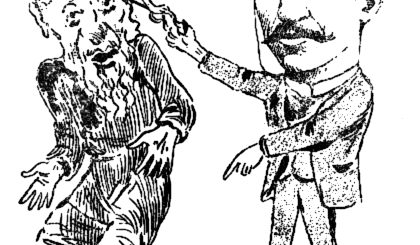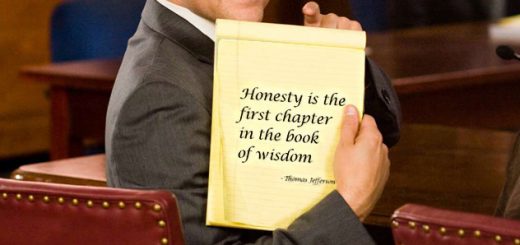On The Front Line

Like mosquitoes dive-bombing a rock, a swarm of writers are waging a spirited, ineffectual, attack on human free will.
One observer of the spate of recent books arguing that people are biological automatons, James Atlas, calls the genre a mirror image of the so-called “self-help” literature. These new offerings, he drolly notes, are “Can’t-Help-Yourself books.”
They follow, and complement, the malignant manna of atheist manifestos that dropped from the publishing sky just a few years back. (In fact, one of the new books is by Sam Harris, the author of one of the old ones.) Denying the Creator opens up new vistas of guiltless behavior. Denying our ability to control our actions erases any residual reservoirs of conscience.
Citing advances in neurobiology, the books make the case that our brain chemicals yield who we are and what we do. Choices we make, their authors argue, derive from our nervous systems, not the “I” that each of us feels is part of our soul. We are, in Mr. Harris’ words, “biomechanical puppets.”
It is true, of course, at least to a degree, that we are hampered by our biologies, conscribed by inherent limitations in how we act and react to things around us. We are born with (unripe but eventually-to-unfold) personalities, desires, and mindsets.
Even beyond biology, as the Rambam (Hilchos De’os 1:2, 1:7) explains, our disposition-settings can be affected by our environments and the effects of our previous actions. But the “Can’t-Help-Yourself” pushers abandon the fields of science for the marshes of wishful thinking when they leap from the fact that there are things human beings cannot easily, or at all, control to the conclusion that, as Mr. Harris puts it, “Free will is an illusion.”
The most accessible modern Torah-source on the topic of human will is likely Rav Eliyahu Eliezer Dessler, who in the 1940s served as the founder and Rosh Kollel of the Gateshead Kollel in England and later as the Mashgiach Ruchani of the Ponevezh Yeshiva in Bnei Brak. The volumes of his posthumously published writings and thoughts, under the title Michtav Me’Eliyahu, are a bookshelf-staple of Mussar movement devotees and, in fact, any Jew of cerebral bent.
In his writings, Rav Dessler often refers to free will. He conceptualizes the Torah perspective in what he calls the “nekudas habechira”—the “point of choice.” His favored metaphor is a battlefield. An invading army, he asks us to imagine, is seeking to advance the line of battle deeper into enemy territory. The enemy pushes back. The territory behind the army is already conquered and secure. The territory beyond the enemy army is currently beyond reach. The dynamic point, the place where gain or loss can take place, is the front line. And that is where the battle must be fought.
Human beings, Rav Dessler explains, are perpetually on a front line facing an enemy: the urge to do wrong. There may be much territory behind us, the yield of battles won; there is little or no temptation to succumb to those distant sirens. And there is always territory yet to conquer, some of it out of reach for the moment, realistically beyond the power of our wills. What matters, because it can be engaged, is the front line, the point where change can transpire, where, with the force of our conscious determination, we can make true choices.
Imagine a person born into a larcenous, murderous environment, raised to take others’ possessions and lives at whim, and who has done so many times. His “front line” may be the decision to spare the life of the potential victim he now has in his gun’s sights. The murderer cannot be expected to choose, at least now, to become a tzaddik, a kind and perfectly righteous man; that is too far from his current state. What he can do, though, is choose to put his weapon down and walk away now. And if he does that, he has won a battle, advanced in life, made a meaningful choice—and is better prepared to face the next one. With enough time and right choices, he can yet achieve tzidkus.
As we all can, on our own individual front lines.
© 2012 AMI MAGAZINE
The above essay may be reproduced or republished with permission, and the copyright above appended.
Communications: [email protected]
Subscribe to Ami at http://amimagazine.org/subscribe.html .




Recent Comments